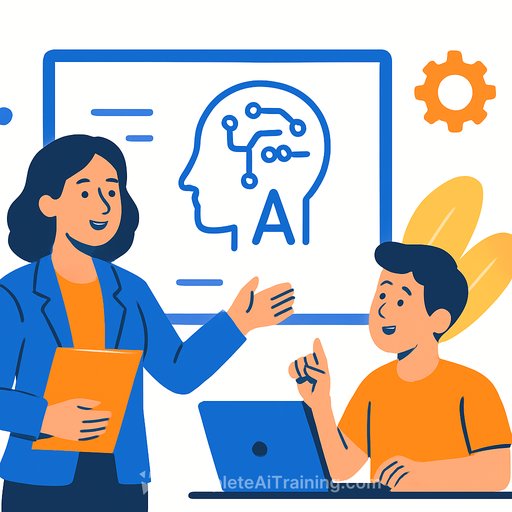How a Jewish University Is Adopting AI-And What Educators Can Learn
Students are changing how they study. Instead of fighting it, Touro University is building AI into its programs with a clear ethical backbone rooted in Jewish values-human dignity, honesty, and responsibility.
In practice, that looks like AI-enabled simulation labs in dentistry and healthcare, course policies that set boundaries without shutting down learning, and faculty support that makes AI a practical teaching tool, not a threat.
Principles First: Values That Keep AI Grounded
- Center human dignity: AI supports learners; it doesn't replace their thinking.
- Protect privacy: Minimize data collection and avoid tools that store student work without consent.
- Insist on honesty: Require disclosure when AI is used and teach citation norms for AI-assisted work.
- Aim for fairness: Stress-test prompts and datasets for bias before bringing tools into class.
Practical Use Cases You Can Implement Now
- Skills labs: AI-driven simulators for dentistry, nursing, and allied health that give instant, targeted feedback.
- Writing and research: Structured AI support for outlining, drafting, and editing-with transparent student disclosures.
- Data fluency: Low-barrier tools to explore datasets in business, social sciences, and STEM courses.
- Accessibility: AI-generated captions, summaries, and translations to widen participation.
- Instructional ops: Automate rubrics, formative feedback, and item banks to free up faculty time.
Academic Integrity Without Fear-Based Policies
Detection-only strategies create false positives and erode trust. Instead, redesign assessments to value process over output.
- Require process artifacts: prompts used, drafts, reflection memos, and citations of AI assistance.
- Use live checkpoints: short oral defenses, whiteboard walks, or in-class builds.
- Mix modalities: combine applied projects, case critiques, and low-stakes quizzes.
For risk and policy framing, see the NIST AI Risk Management Framework and UNESCO's guidance for AI in education here.
Faculty Enablement That Actually Works
- One tool, one use case: Start small (e.g., feedback on drafts, rubric generation) and scale what sticks.
- Model in public: Share prompts and outputs in class; narrate your decision-making.
- Create a shared prompt library: Course-specific templates any instructor can adapt.
- Office hours for AI: Short sessions where students bring tasks and learn responsible use.
30-60-90 Day Implementation Plan
- Days 1-30: Write a short-use policy, pick two pilot courses, choose compliant tools, and train instructors.
- Days 31-60: Launch pilots with clear student disclosures, collect artifacts, and track outcomes and effort saved.
- Days 61-90: Review results, refine assessments, expand to 3-5 more courses, and publish your playbook.
Measure What Matters
- Learning: quality of work, revision depth, and performance on transfer tasks.
- Equity: participation rates across student groups and access to tools.
- Time: grading hours saved and turnaround speed for feedback.
- Integrity: disclosure rates and reduced incidents through assessment design.
A Note on Context: Why Touro's Approach Works
Touro University pairs AI adoption with value-based guardrails. In areas like dental education, AI-enabled simulation gives students immediate, precise guidance while faculty keep human judgment in the loop.
The takeaway for academic leaders: anchor AI to your institution's values, teach transparent use, and align tools with measurable learning outcomes.
Resources to Speed Up Your Rollout
- Curated training for academic roles: Courses by job
- What's new and worth testing: Latest AI courses
Students have already changed how they learn. Institutions that set clear ethics, teach practical use, and redesign assessments will stay relevant-and help graduates think critically in an AI-enabled economy.
Your membership also unlocks:





